We advise a ‘two week rule’: allow two weeks hair growth following your regular form of hair removal for your first waxing treatment. Your hairs need to be minimum ⅛” or ½ cm for best results.
Brow Waxing
Understanding and Finding Your Shape
Square

Square faces have well-defined, sharp angles naturally, so a round or soft angled brow will create a balanced look.
Round

With round faces, sharp angled brows with a high arch look best and help to create definition.
Long

Long or oval faces benefit from having soft arches or a flat brow; having an arch that’s too high will elongate the face.
Heart

Heart-shaped faces look best with a natural, soft-angled arch that draws just the right attention to the upper half of the face.
Determine Your Natural Shape
Brush
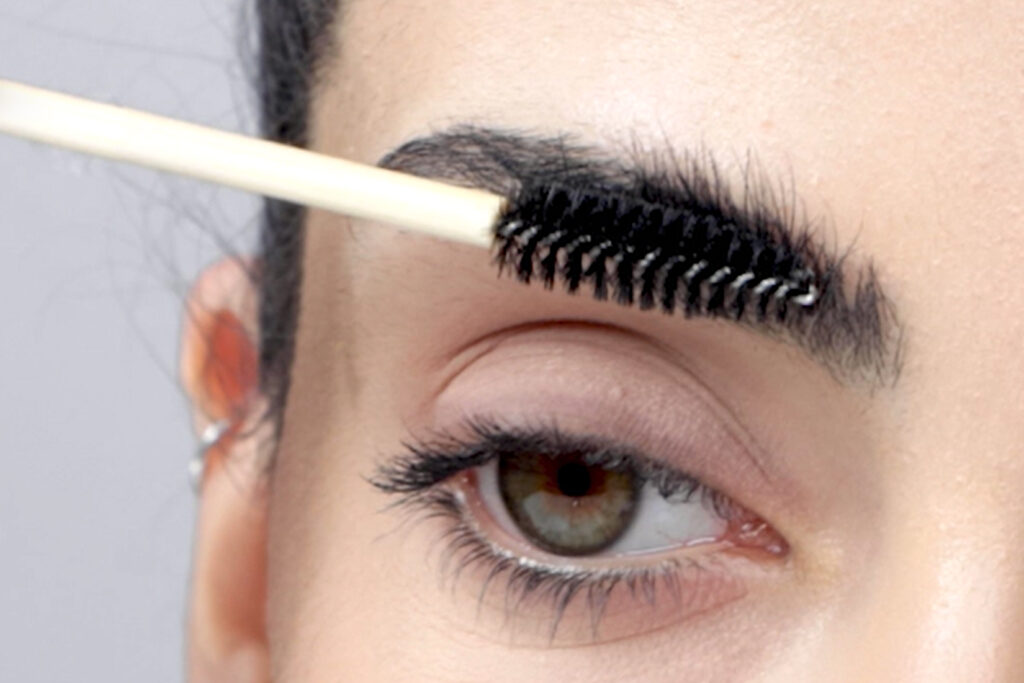
Use a brow brush, mascara wand, toothbrush or your fingers to brush your brow hairs upwards. Brushing maintains your natural shape and reveals your natural arch.
Start
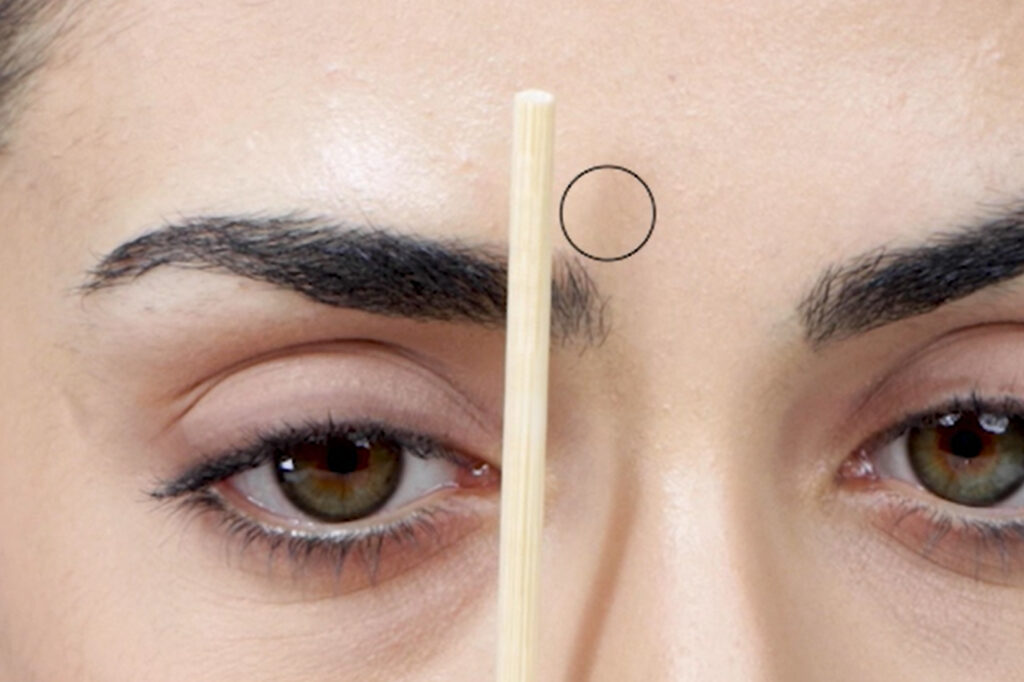
The start of your brow should line up with the edge of your nose. Use a brow spoolie to map this out.
Arch
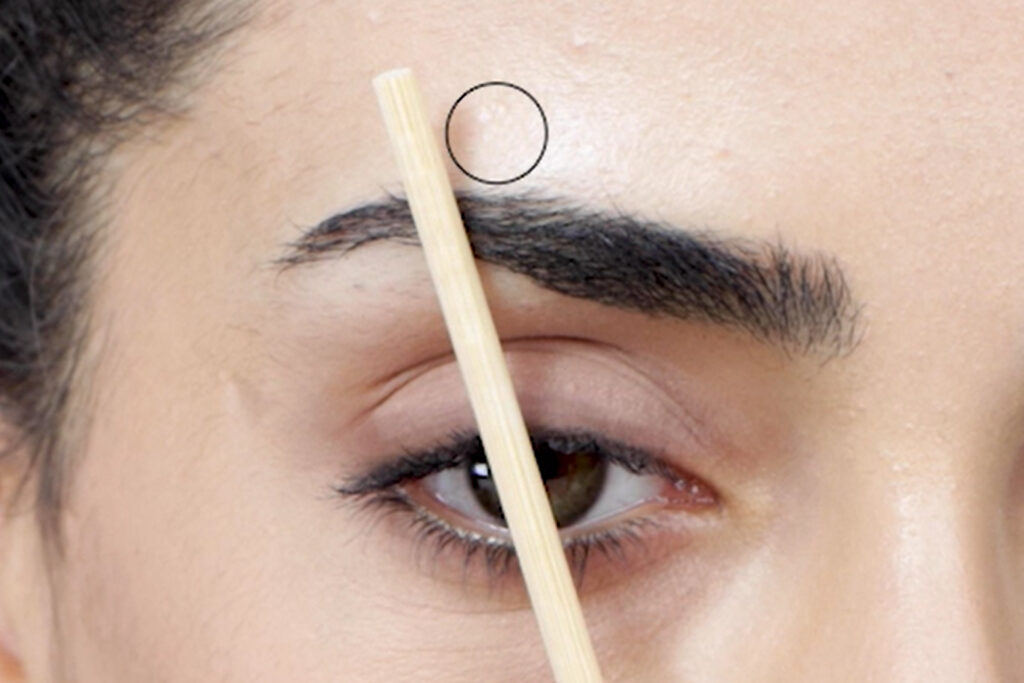
The highest point, the arch, should be in line with the centre of your eye.
End
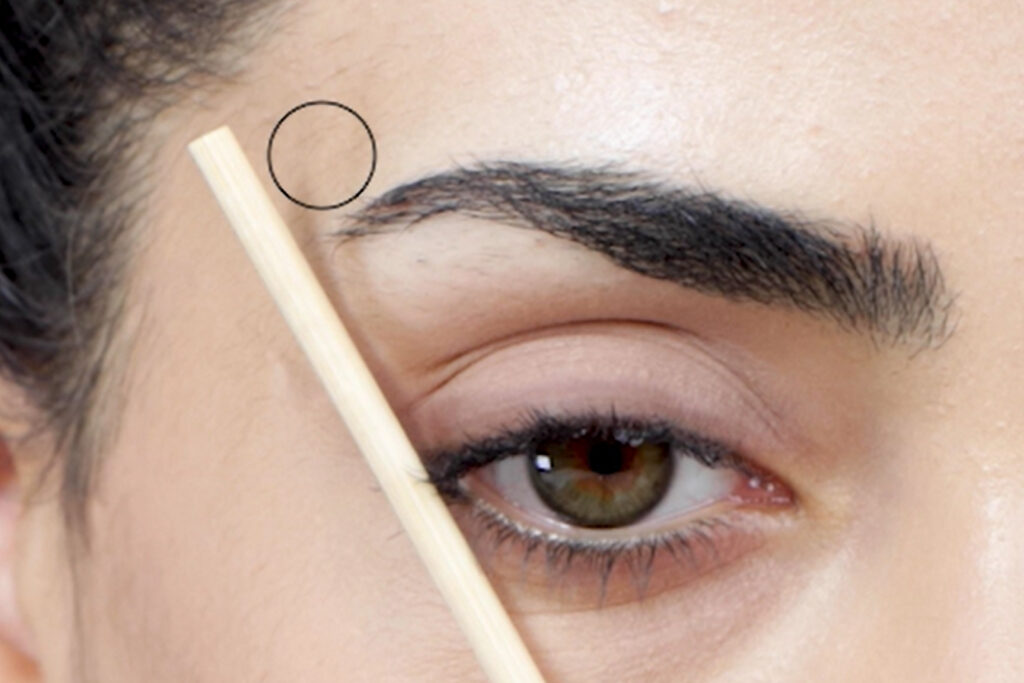
The end of your brow should taper at the point that would meet an imaginary line drawn from the edge of your nose, past the outer edge of your eye.
Pro Tips:
- Regular brushing of the brows will train your hair to grow into a natural arch that puts the focus on your eyes. Brushing your brows up instantly creates a more dramatic look and brightens the eyes. Once you’ve brushed your brows and revealed your natural brow shape, you may notice a few longer or unruly hairs that require trimming.
- Use a small pair of scissors to trim these hairs. Trimmed brows can take away some volume and give a more structured appearance to your brows. Just these first two steps can have a substantial impact on the appearance of your brows.
Benefits
Two main benefits include the immediate and consistently smooth skin that results in less regrowth over time. However, there are multiple other advantages that make waxing the preferred way to remove hair for many individuals.
Long-lasting
Removing unwanted hair is something everyone deals with weekly. Waxing is one of the most effective hair removal methods that keep the skin hair-free longer because it pulls the hair from the follicle rather than just cutting it on the surface.
Smoother and healthier skin
Waxing achieves smoother, softer skin by removing the top layer of dry, dead skin cells along with the hair. As a result, the skin underneath is soft, even, and smooth. No other method of hair removal can achieve such smooth skin.
Environmentally friendly
Hair removal wax has minimal impact on the environment. In contrast to plastic disposable razors left over from shaving, eco-friendly options make waxing extremely sustainable. For example, washable epilation strips may re-used as necessary, and biodegradable strips are easily broken down.
Less irritation
Importantly, waxing is gentle enough for the face and body. Unlike depilation, when hair is removed at the surface by shaving or the use of a hair removal cream, waxing is a form of epilation that grabs hair follicles at the root. It does not result in nicks, cuts or razor burn nor does waxing use harsh chemicals.
Cost-effective
Waxing lasts longer than shaving and is less expensive than laser hair removal treatments. Once unwanted hair is waxed, it stays smooth for weeks. There is no need to purchase razors or blades. Lasers must be administered by a professional technician and still do not guarantee 100% permanent hair reduction. While maternity waxing is very popular, laser hair removal is not suitable for pregnant women.
Convenience
Waxing can be done in the comfort of your own home without the need to visit a salon or laser clinic. It is suitable for all hair types. Waxing is also time-effective in the sense that smooth results last for weeks at a time without the need to shave.
How to Wax
Using Hard Wax
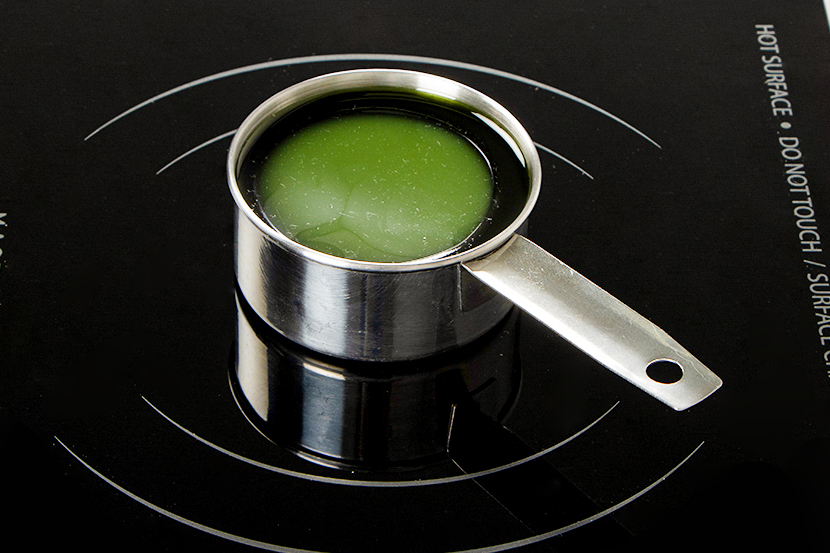
Heat the wax
1. Heat the hard wax on a stove on low heat or in a wax warmer or microwave (if the wax is microwavable) to achieve a honey like thick consistency.
2. Test the wax temperatures by applying a small patch to your outer wrist and gauge if the heated wax is too hot to proceed. It should be hot, but tolerable. For safety purposes, you can use wax warmers with temperature control features.
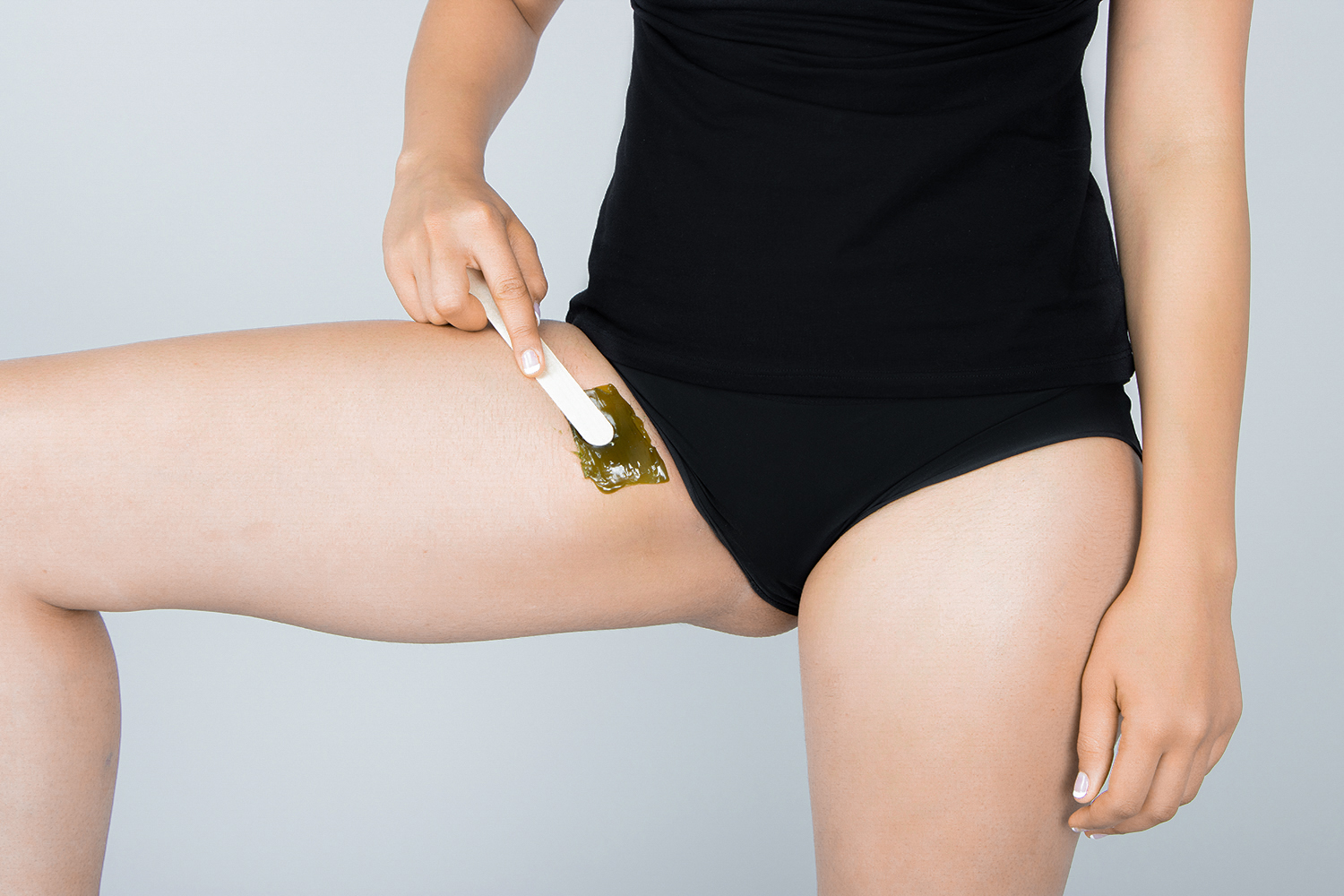
Apply the wax
3. Check the direction of hair growth and work in small sections.
4. With the help of a spatula, apply the wax on the body part and spread in a thick layer.
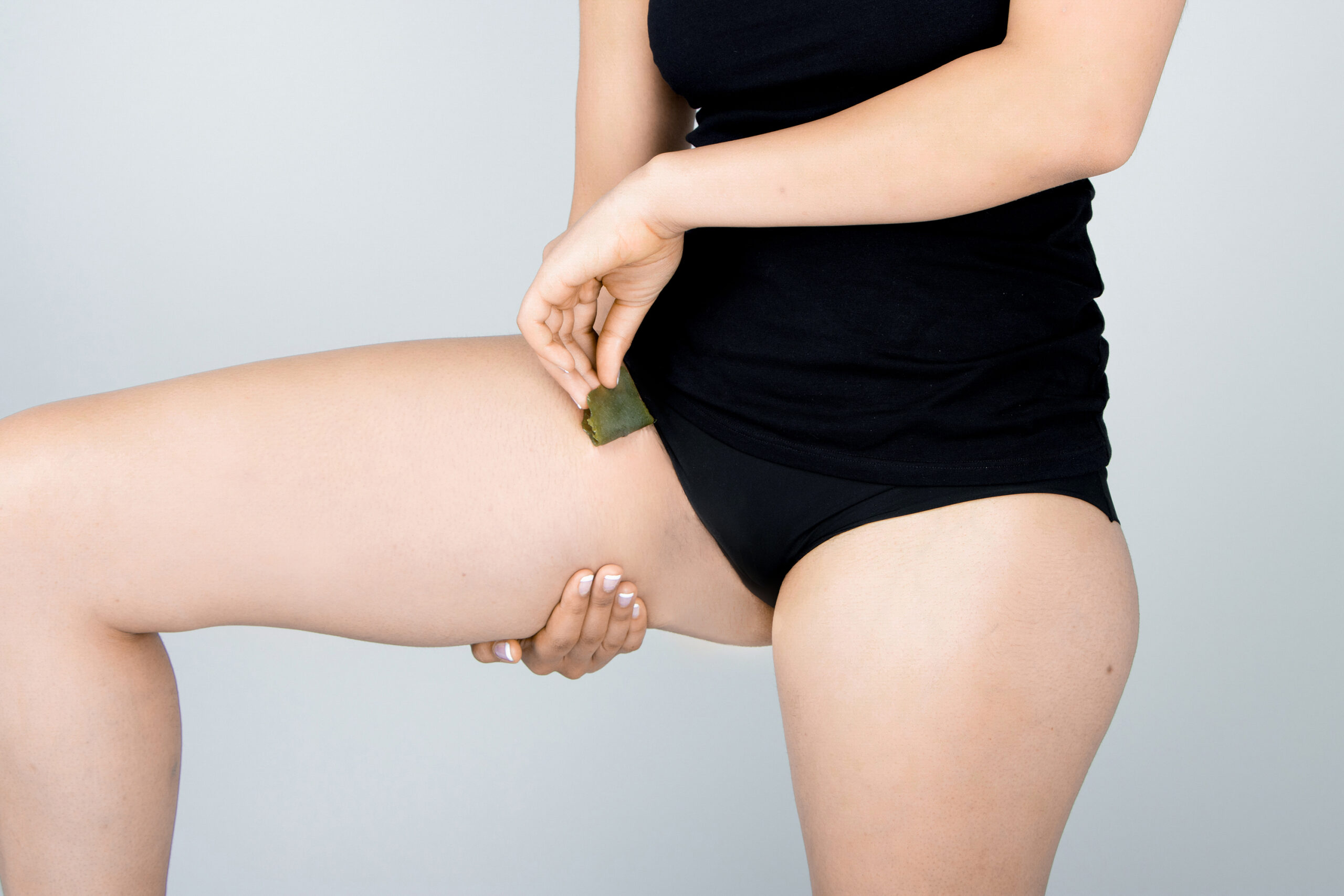
Pull Off
5. Even out the wax with your fingers when it is pliable.
6. Keeping the skin taut, quickly peel off the outer end of the wax in the opposite direction of hair growth5
Using Soft Wax
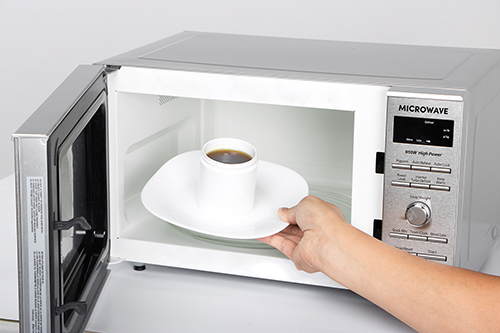
Heat the Wax
1. Heat the wax to a honey like consistency on a wax warmer or a microwave.
2. Test the wax temperatures by applying a small patch to your outer wrist and gauge if the heated wax is too hot to proceed. It should be hot, but tolerable. For safety purposes, you can use wax warmers with temperature control features.

Apply the Wax
3. Apply the wax in the direction of hair growth in a thin layer.
4. Spread the wax evenly using a spatula.
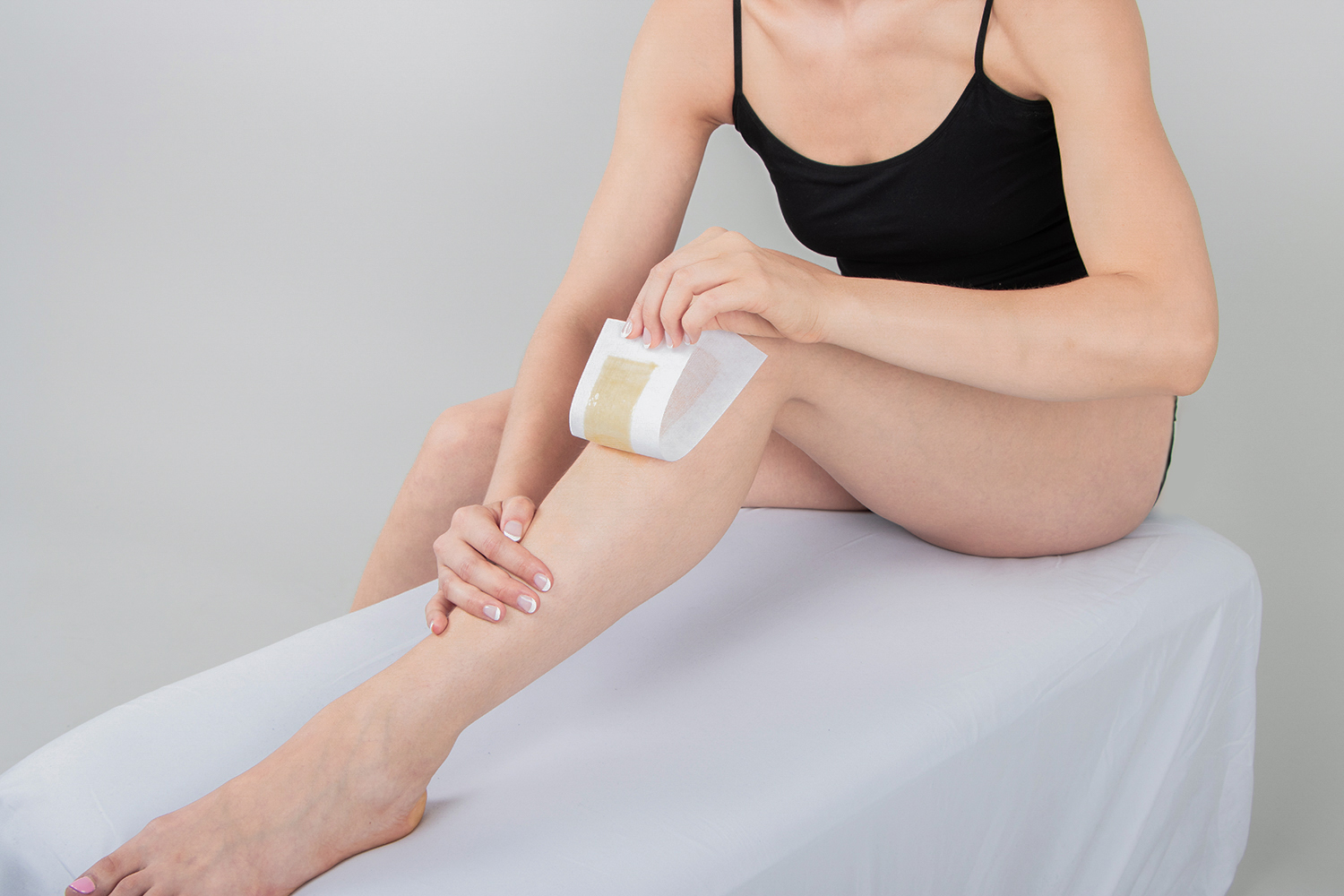
Pull Off
5 Press on an epilation strip on the wax you have applied and smooth it don with your fingers.
6. Keeping your skin taut, quickly zip off the epilation strip in the opposite direction of hair growth.
Using Wax Strips
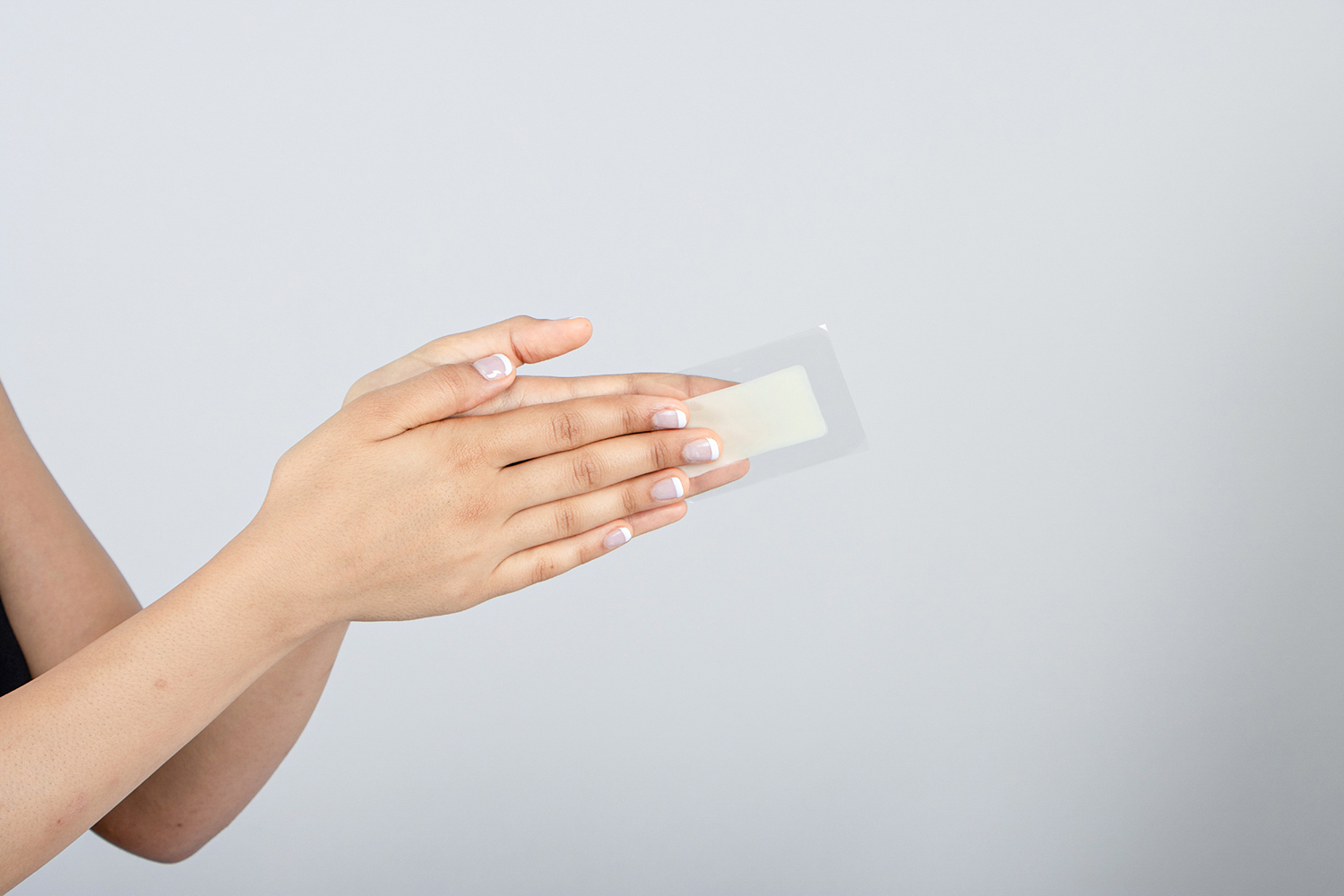
Heat and Seperate
1. Rub the strips between your palms.
2. Separate the strips in two two wax strips
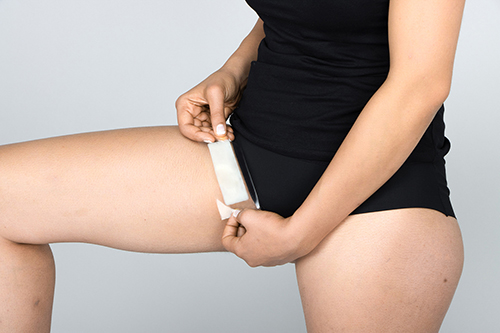
Apply the strip
3. Apply the wax strip in the direction of hair growth.
4. Smooth down the wax strip with your fingers.
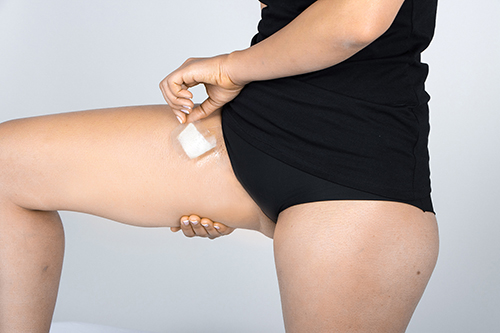
Pull Off
5. Keeping the skin taut, grab the end of the wax strip.
6. Quickly zip off the wax strip in the opposite direction of hair growth.
FAQs
No! You shouldn’t wax any areas that are sensitive, sunburned, irritated or injured.
Yes, absolutely! Maternity waxing gives pregnancy a new meaning. Growing a human being is an exciting but challenging journey that can leave a woman feeling vulnerable and exposed. Maternity waxing is there to help her feel pampered, cared for and confident that she looks and feels her best through this exciting time.
Check out this great article from Parissa: IS IT SAFE TO WAX WHILE PREGNANT? A GUIDE TO MATERNITY WAXING.
Since waxing removes hair from the root, results last much longer than shaving and other methods. Generally speaking, waxing provides smoothness for about 4 weeks. But everyone’s different, so results can vary anywhere from 2 – 6 weeks, depending on your hair type. Longer results aren’t the only benefit: over time hair growth is reduced and becomes softer and sparser since regular waxing weakens the hair follicles.
It can be surprisingly easy to wax, but like all beauty regiments the more familiar you become with the technique the better your results. Try Wax Strips for a mess-free introduction to waxing.
